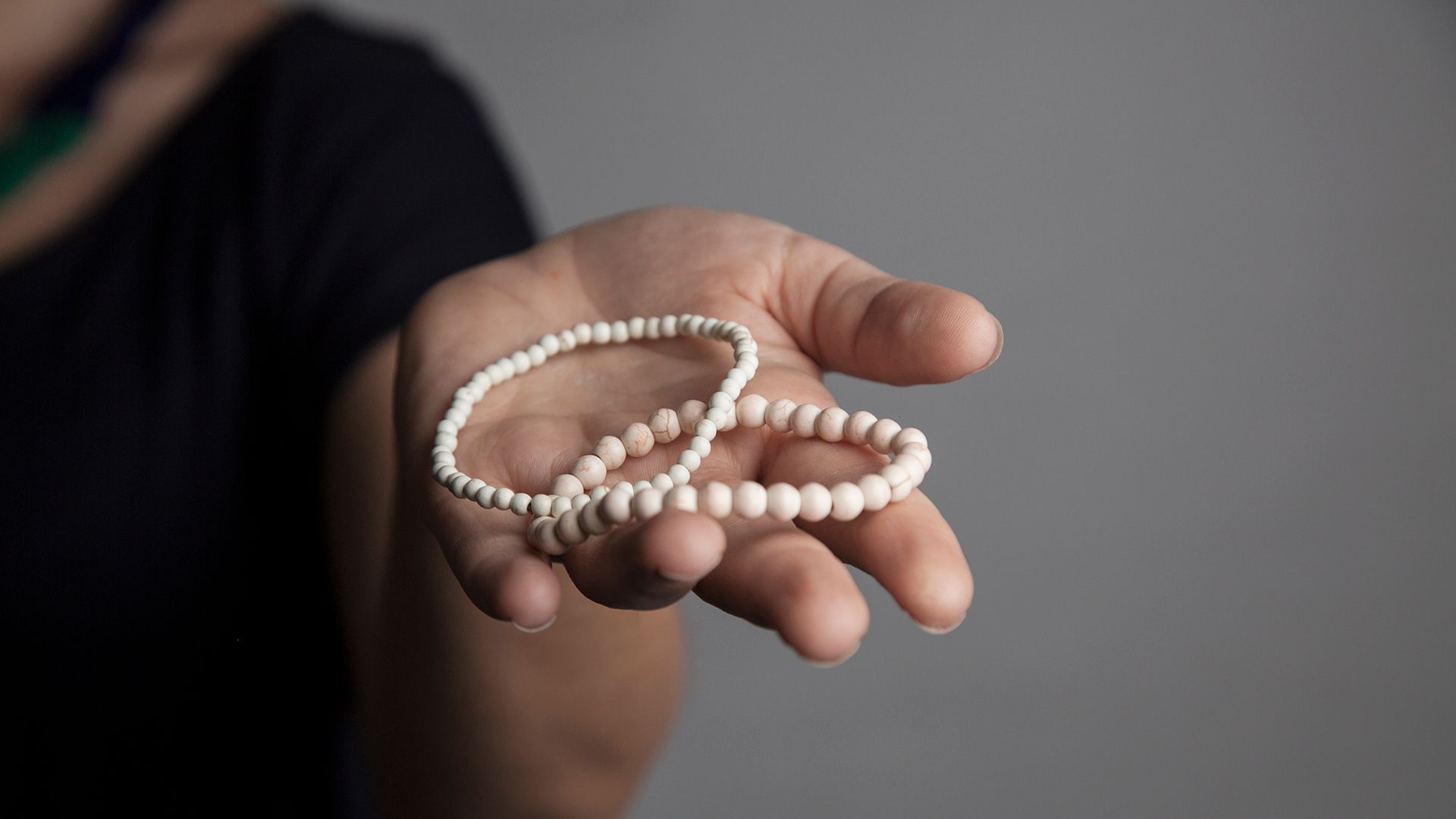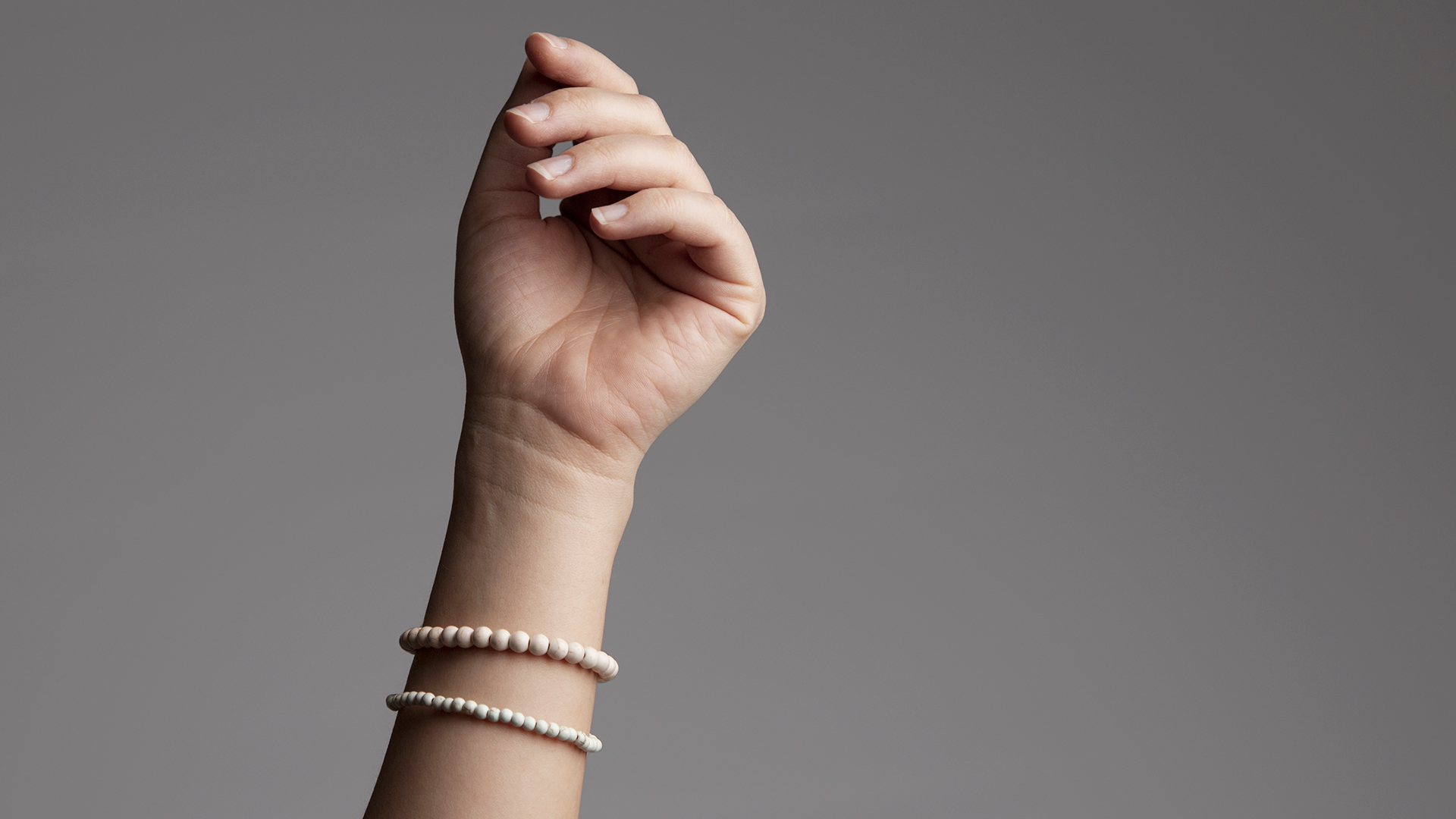
When I was a teenager, a girl from another culture crossed my threshold. My family hosted a high school student from Ethiopia. Her name was Anika,* but it wasn’t long before we all called her Aki. When we were getting acquainted, I complimented my new sister on the ivory bracelets stacked along her forearm. Instantly, she slid off two and presented them to me.
I was taken aback. Aki explained that in her culture when a person says they like something of yours, you are obligated to give it to them. Although I tried to return her spontaneous gift, she insisted the bracelets were mine. We may have been in Canada, but Ethiopia remained in Aki.
A Spontaneous Gift and Gospel Truth
In Canada, where I was living at the time, birthdays, Christmas, and special events like graduations all warrant gift giving. But all you owe for a compliment is a polite “thank you.” Aki’s gift shocked me because it veered so far from my culture’s norms related to giving. But I treasured the bracelets because of their association with Aki, whom I grew to love.
With a simple gift, Aki’s generosity challenged my cultural expectations and began to change me. When I look at the bracelets now I see an object lesson. Her way of holding possessions loosely showed me new possibilities for my attitude and behavior.
Why do some cross-cultural experiences spark fundamental change while others are Instagrammed, liked, and forgotten? Anthropologists might trace Aki’s giving to inherited tribal views of property as communal. But that concept isn’t what impressed her gift into my psyche. Aki’s gift resonated with me because it touched on an aspect of truth within my own heritage, the gift that defines who I am: the gospel.
Aki did not cling to her ivory bracelets, despite their worth, both monetary and as a symbol of her homeland. She gave. Generosity resonates with Christians. Jesus gave his life for me. He said, “No one takes [my life] from me, but I lay it down of my own accord” (John 10:18 NIV). Aki’s attitude toward her treasures hit me because her generosity smelled of Christ-like love. Yummier than vanilla or gardenia or laundered linen, it smelled like Jesus. I wanted to live like that!

Photos by Elle Graham.
Giving without Hesitation
In the ensuing years, culture hopping became my habit, affording more lessons on giving. Once when Aki was living in California, I went to visit her. This time, I came bearing gifts. I also happened to be wearing eye-catching earrings. They were the only gift I’d received on my first Christmas away from home when I was an exchange student in Kazakhstan. Aki said, “I like your earrings.” Instantly, I slid them off and presented them to her. We may have been born worlds apart, but we’d become part of the same tribe.
“Aki’s gift resonated with me because it touched on an aspect of truth within my own heritage, the gift that defines who I am: the gospel.”
Aki barely had time to feel the pull of the silver in her lobes before her little sister asked to wear the earrings. Of course, Aki handed them over. We were outside when I noticed one earring off kilter. Not wanting to seem critical of a girl I’d just met, I said nothing. As we walked, the earring must have fallen out. We never found it. To all three of us, it seemed such a waste. But the loss of a material thing transformed into a lasting treasure: the memory of that moment when Aki knew I loved her because I gave without hesitation.
Loving by giving isn’t only for family and friends. Christ gave himself while we were enemies (Rom. 5:10). He said, “Freely you have received; freely give” (Matt. 10:8 NIV). To demonstrate love for God and others, we are generous with time, energy, and our material resources.
The Blessedness of Possessing Nothing
In The Pursuit of God, A. W. Tozer described the original human relationship to material goods in a chapter titled, “The Blessedness of Possessing Nothing.” Tozer said that in Eden the things God gave Adam and Eve, “were made for man’s use, but they were meant always to be external to the man and subservient to him. In the deep heart of the man was a shrine where none but God was worthy to come. Within him was God; without, a thousand gifts which God had showered upon him.”
Tozer described how sin causes our roots to grow down into possessions—that if, in that state, the possessions are ripped from us, we die. This was the danger of Abraham’s love for Isaac and why God mercifully demanded that Abraham sacrifice his son, ensuring that Abraham’s roots grew into God only. Abraham may have been rich, but he was not rooted in wealth. “He had everything, but he possessed nothing. There is the spiritual secret.”
Aki’s reaction to compliments is as reflexive as muscle memory, a pattern that is becoming more natural to me too. On a recent girls’ night out, a friend complimented my glossy pastel lip color. I slipped my hand into my purse to retrieve the lip gloss. “I’d really love to give you this,” I said, although experience with people of my own culture caused me to add, “If I do, would you use it?” She was taken aback. But she accepted. That gloss looks good on her!
At this point in life, I’ve grown attached to certain things: keepsakes, meaning-imbued art, gifts from loved ones, the loved ones themselves. But I must keep giving. In the context of such abundance, my open hands keep Jesus in his rightful place as the treasure of my heart. Thus, my roots grow into him. And I am free to give. To thrive.
*Name changed.
Jennifer Waldrep is an IMB missionary in Lima, Peru.

